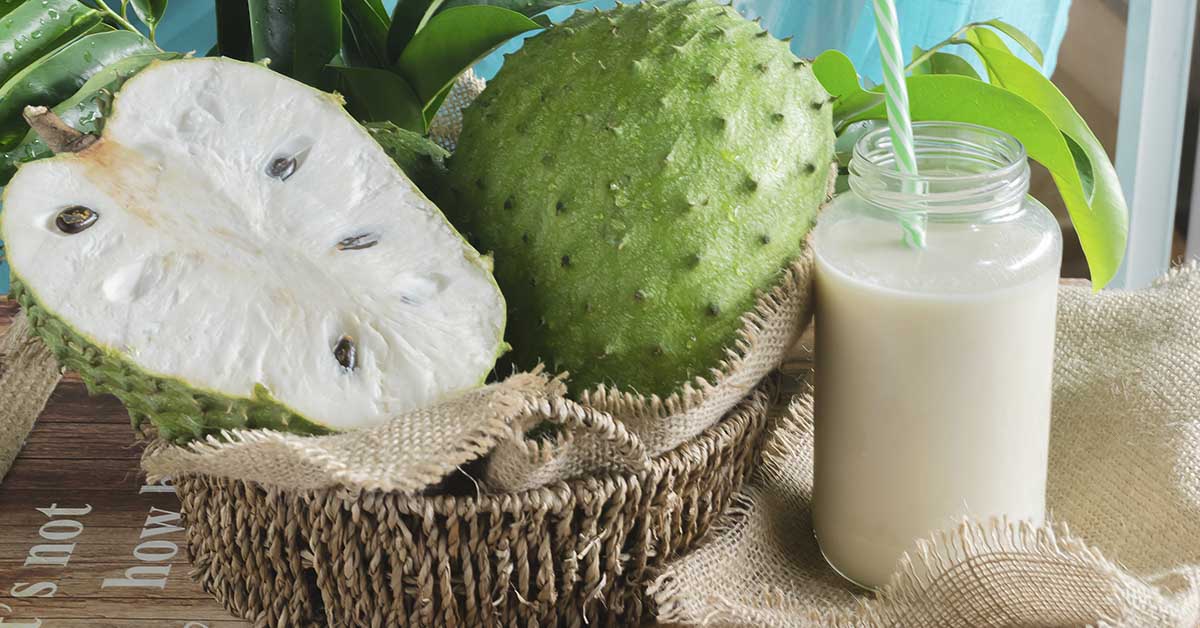If you’re a fan of fruits like berries and pomegranates, you’re probably familiar with the terms “antioxidants” and “super fruit.” But if you’ve never heard of Graviola before, it’s time to get acquainted. This delicious fruit is packed with antioxidants—and might even be able to help fight cancer!
What is Graviola?
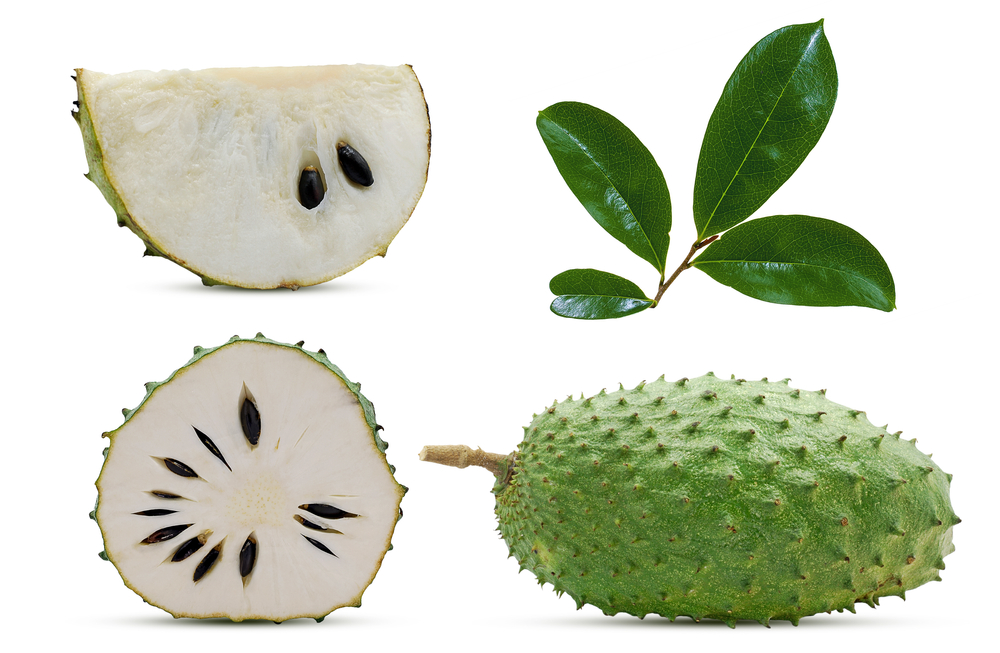
Graviola grows on trees that can reach up to 50 feet tall in their native habitat, which is usually tropical regions near the equator. It has a creamy white flesh that surrounds large seeds and tastes similar to pineapple. Its scientific name is Annona muricata, but it’s also known as soursop, Brazilian paw paw, or Guanabana. (1, 2)
Read More: Why 3-Day-Old Broccoli Sprouts Contain 100X More Antioxidant Power Than Big Broccoli
What Is The Nutritional Content Of Graviola?
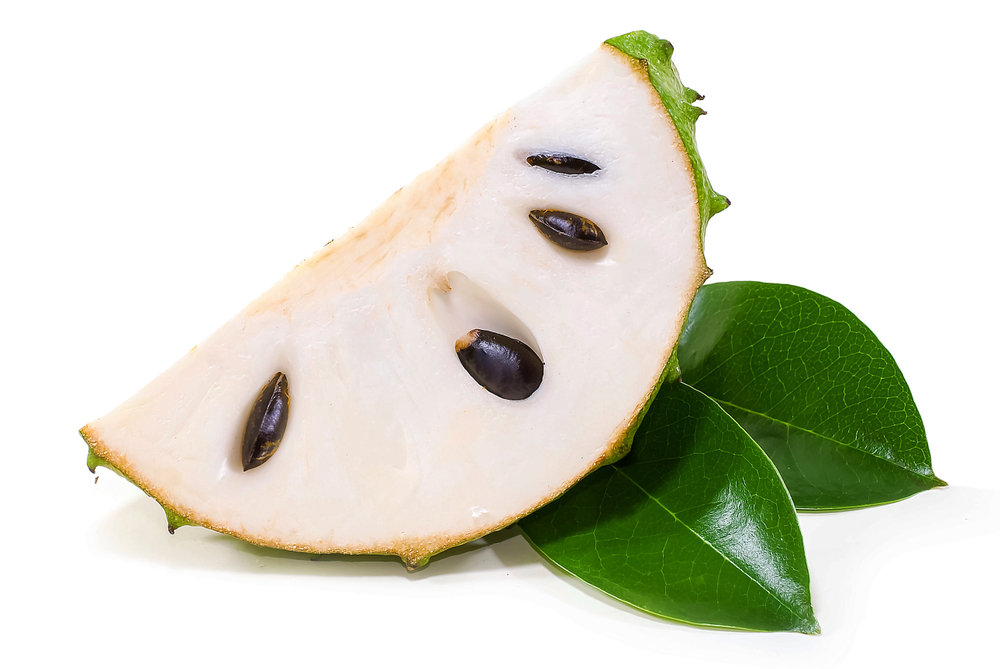
Graviola is low in calories but high in nutrients—it contains vitamins A and C as well as folate (a B vitamin) and potassium (which helps regulate blood pressure). It’s also rich in antioxidants and has anti-inflammatory properties. The fruit is also a good source of fiber, magnesium, and thiamin. It also contains some iron, riboflavin, and niacin.
Eating soursop is easy: Just cut it in half and scoop out the tasty insides with a spoon. Beyond a healthy, tasty treat, guanabana has been used for centuries in Latin America to treat indigestion, diabetes, and other ailments. It’s also been shown to have anti-inflammatory properties and may help prevent cancer.
Health Benefits of Graviola
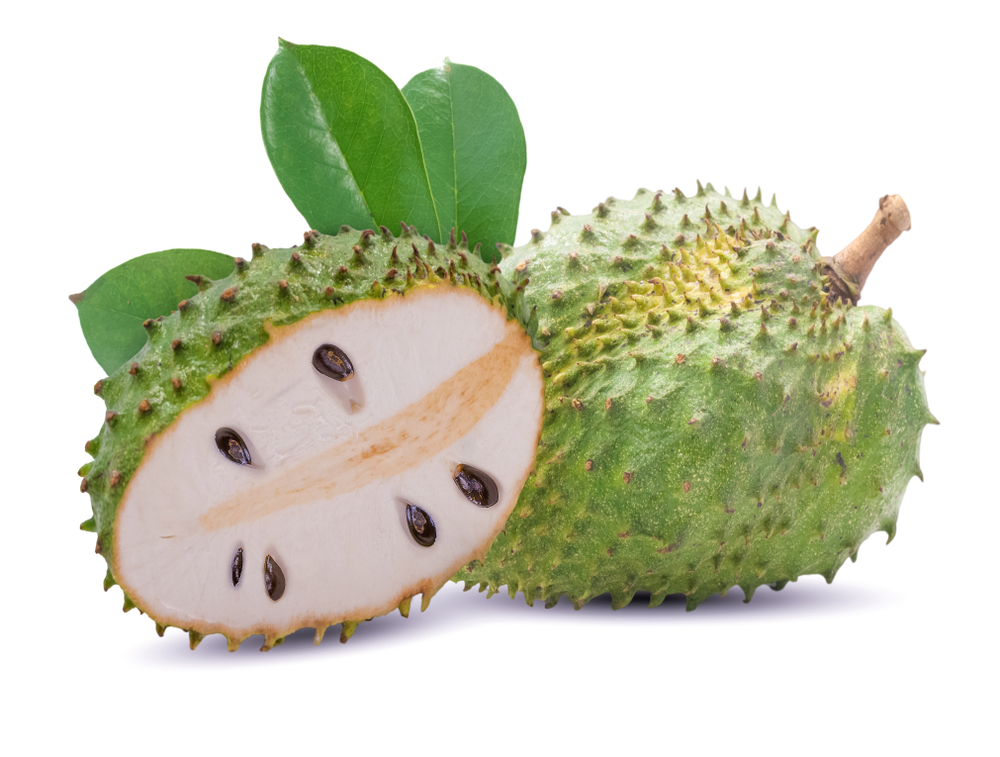
Graviola comes with a number of potential health benefits. Though as with most beneficial fruits, more research is needed, there are many promising attributes to this sweet, juicy tropical fruit.
High In Antioxidants
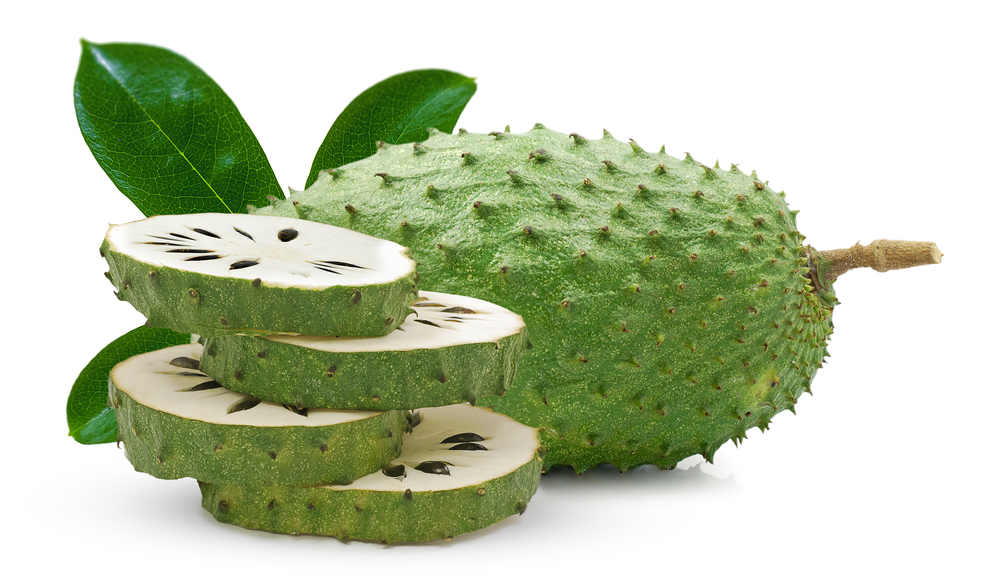
Graviola is a high-antioxidant fruit. Antioxidants are naturally occurring compounds that may help protect against free radical damage in the body. Free radicals can cause oxidative stress and inflammation, which can lead to premature aging and disease. Scientists have specifically found several plant compounds that act as antioxidants in the body in soursop. These include the powerful luteolin, quercetin, and tangeretin. (3, 4)
These compounds may help prevent cancer growth, heart disease, and other chronic conditions in humans. In addition, Graviola contains vitamin C and a good amount of potassium. This tropical fruit can help stave off colds and flu by supporting the immune system.
May Help Kill Cancer Cells

Studies have shown that Graviola may be effective in killing cancer cells. The fruit contains numerous compounds with anti-cancer properties, such as the antioxidants already mentioned. It is important to note, however, that it was soursop extract that was found to have potentially anti-cancer effects. The extract is much more potent than what you would get from simply eating the fruit itself. More research is needed to determine just how beneficial graviola is or could be for cancer prevention and treatment. (5, 6)
Read More: This Leaf Extract has 400 Times More Antioxidant Power Than Vitamin C
Can Help Fight Bacteria

Graviola is also believed to have antibacterial properties. In test tube studies, it has been shown to prevent the growth of certain types of bacteria that cause disease in humans. This includes those that cause gingivitis, tooth decay, yeast infections, and potentially those that cause cholera and Staphylococcus infections. Again, these are lab results, not necessarily real-world. In the cases of cholera and Staph infections, the researchers were specifically using soursop extract, which, again, is much more concentrated than what you get in the fruit. (7, 8)
Help Reduce Inflammation

In animal studies, researchers found graviola to have anti-inflammatory effects. In one study specifically, scientists found that soursop extract was found to decrease the levels of certain inflammatory markers involved in arthritis. Though more research is needed, this could potentially improve the way we treat arthritis in the future. (9, 10)
The Bottom Line
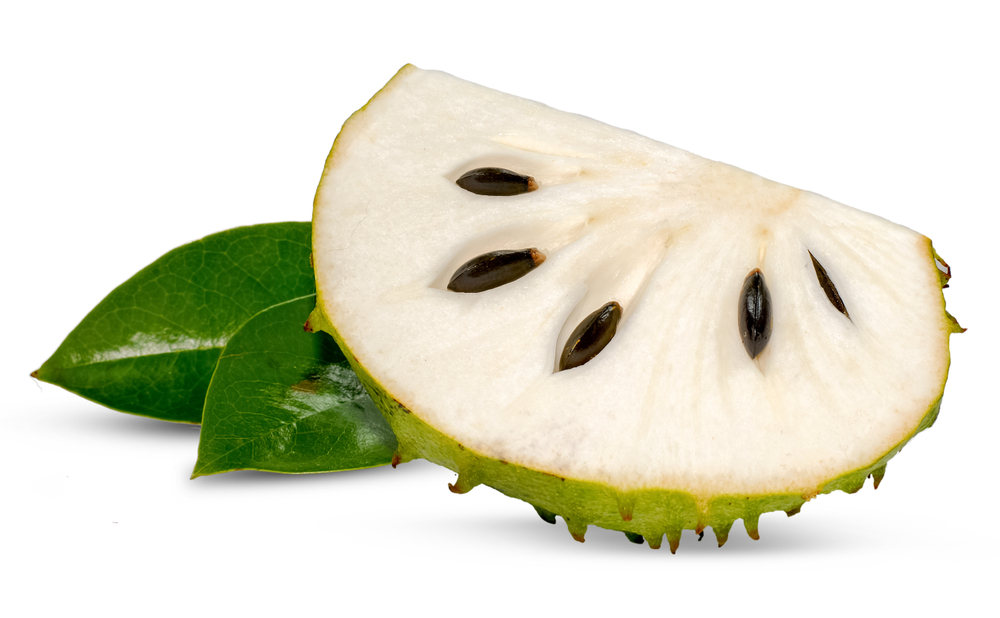
Graviola is a delicious tropical fruit that could make an excellent addition to an already healthy diet. If you live in more northern regions, you may find it difficult to find. Those who live more south or if you live in or are visiting South America, try this fruit. It is tasty, refreshing, and full of nutrients that will benefit your body in many ways.
Read More: Passionfruit Contains High Levels Antioxidants And 13 Known Carotenoids
Sources
- “Soursop, raw.” USDA
- “Graviola.” MSKCC
- “The antioxidant activity of soursop decreases the expression of a member of the NADPH oxidase family.” Pubmed. Y Zamudio-Cuevas, et al. February 2014.
- “Antioxidant, DNA protective efficacy and HPLC analysis of Annona muricata (soursop) extracts.” Pubmed. V Cijo George, et al. April 2015.
- “Anti-cancer effect of Annona Muricata Linn Leaves Crude Extract (AMCE) on breast cancer cell line.” Pubmed. Syed Umar Faruq Syed Najmuddin, et al. August 2016.
- “Antiproliferative activity and induction of apoptosis by Annona muricata (Annonaceae) extract on human cancer cells.” NCBI. Constant Anatole Pieme, et al. 2014
- “Anti-microbial Efficacy of Soursop Leaf Extract (Annona muricata) on Oral Pathogens: An In-vitro Study.” NCBI. BH Mithun Pai, et al. November 2016.
- “Antibacterial effect (in vitro) of Moringa oleifera and Annona muricata against Gram positive and Gram negative bacteria.” Pubmed. Gustavo Hitzschky Fernandes Viera, et al. May- June 2010.
- “Mechanisms of Analgesic and Anti-Inflammatory Properties of Annona muricata Linn. (Annonaceae) Fruit Extract in Rodents.” NCBI. Ismail O. Ishola, et al. December 2014.
- “Anti-arthritic activities of Annona muricata L. leaves extract on complete Freund’s adjuvant (CFA) – induced arthritis in rats.” Thieme.
